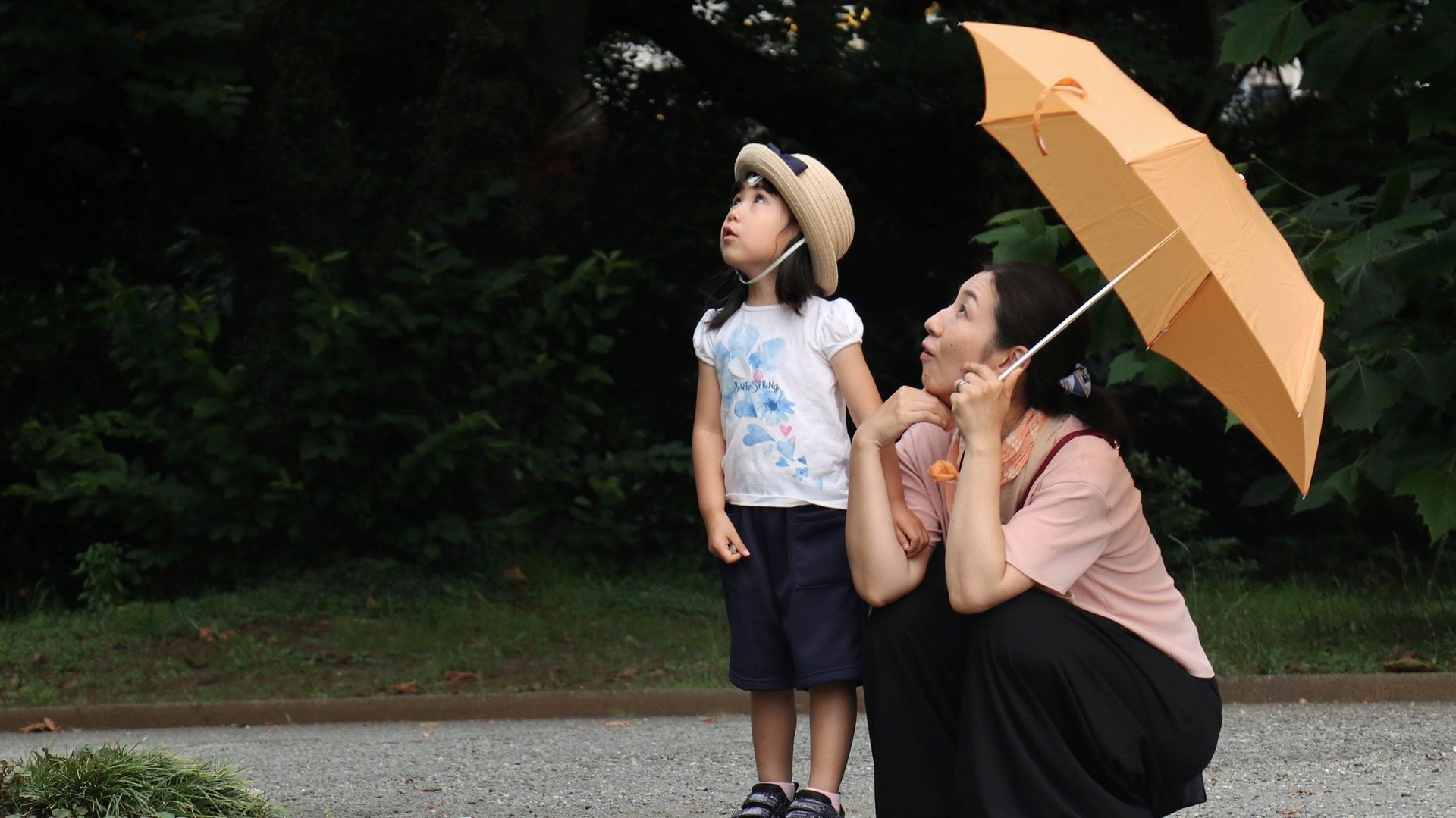Don’t expect your kids to come to you with all their problems—find them a “trusted adult”
With the sexual assault allegations against Supreme Court justice nominee Brett Kavanaugh dominating the headlines, figuring out how to talk to younger kids about the news can feel fraught. How do you explain assault before a child really understands sex?


With the sexual assault allegations against Supreme Court justice nominee Brett Kavanaugh dominating the headlines, figuring out how to talk to younger kids about the news can feel fraught. How do you explain assault before a child really understands sex?
Difficult though the conversation may be, parenting experts say you should give it a try. “As parents, you are the primary sexuality educator of your children — whether you’re saying anything or not,” Debra Hauser, the president of Advocates for Youth, a US nonprofit committed to honest sexual health education, tells NPR. Parents are the main source for kids to learn about critical issues like trust, consent, and what a healthy relationship looks like. If you don’t start the conversation while they’re young and open to your help, why would they ever feel comfortable coming to you when they are scared, ashamed, or unsure?
There are many reasons our kids might not come to us with their troubles. They might fear being punished, or simply think they will disappoint us. They may want to protect us, or think they need to protect others. Natasha Devon, a writer and mental health activist who works in schools across the UK, observes that the number-one reason teens say they don’t talk to their parents is they are afraid their parents will freak out. Of course, it’s hard to hear that your child is having sex or doing drugs, she acknowledges. “My advice? Put your feelings in a box, scream later. Right in that moment when they come to you, you have to let them know you won’t judge them, you won’t freak out, and and they can talk to you.”
But another way that you can help your child is by making sure they know it’s okay to go to other adults with questions and problems, too. Hauser also tells NPR that while her kids were growing up, each year, she would have them name at least one trusted adult outside of the family to go to with hard things. Together, they would tell the adult (or adults) about the agreement.
Younger kids might find the idea of needing a trusted adult baffling. A family friend recently told my own daughter that she was there for her, anytime, and that my daughter could always come to her to talk. Later, my daughter asked me: ”Why wouldn’t I just come to you?”
It was a sweet sentiment. But I explained that while she might feel like she could tell me anything now—she’s still young—there might be things in the future that she won’t want to share with me. I made sure my daughter knew that was okay, and that I, too, trusted my friend to help her.
The parents are not alright
Evidence suggests that parents are not doing a spectacular job of talking to our kids about sex and related issues. According to a report from Harvard’s Making Caring Common project, 70% of kids surveyed wished they had gotten more information from their parents about managing the emotions of a relationship. “For adults to hand over responsibility for educating young people about romantic love—and sex—to popular culture is a dumbfounding abdication of responsibility,” the report said.
The reasons parents gave in the report for not talking more honestly included assuming kids didn’t want their advice, as well as thinking their own failed relationships rendered them unfit to offer insights. But this makes no sense. Kids will never ask for more guidance or request an uncomfortable conversation. There are plenty of things kids don’t want from us, like bedtimes and broccoli, but we do it because we know they need it.
And sex ed in many parts of the US is a catastrophe, so outsourcing it is not an option. According to the Guttmacher Institute, a non-governmental organization that advocates for increased family planning, 76% of public and private high schools in 2014 taught abstinence as the most effective method to avoid pregnancy and sexually transmitted infections (STIs). There are organizations that can help, from Hauser’s Advocates for Youth to AMAZE and Our Whole Lives, a detailed, kindergarten-to-adulthood sex-ed curriculum developed by the Unitarian Universalist Association (UUA) and the United Church of Christ, which is widely used in the US. Still, parents should think of such organizations as a supplement—not a substitute.
It takes a village to raise a child. But in the warp-speed-paced world that we live in, we may need to go out of our way to let kids know who’s in the village—and how to contact them.